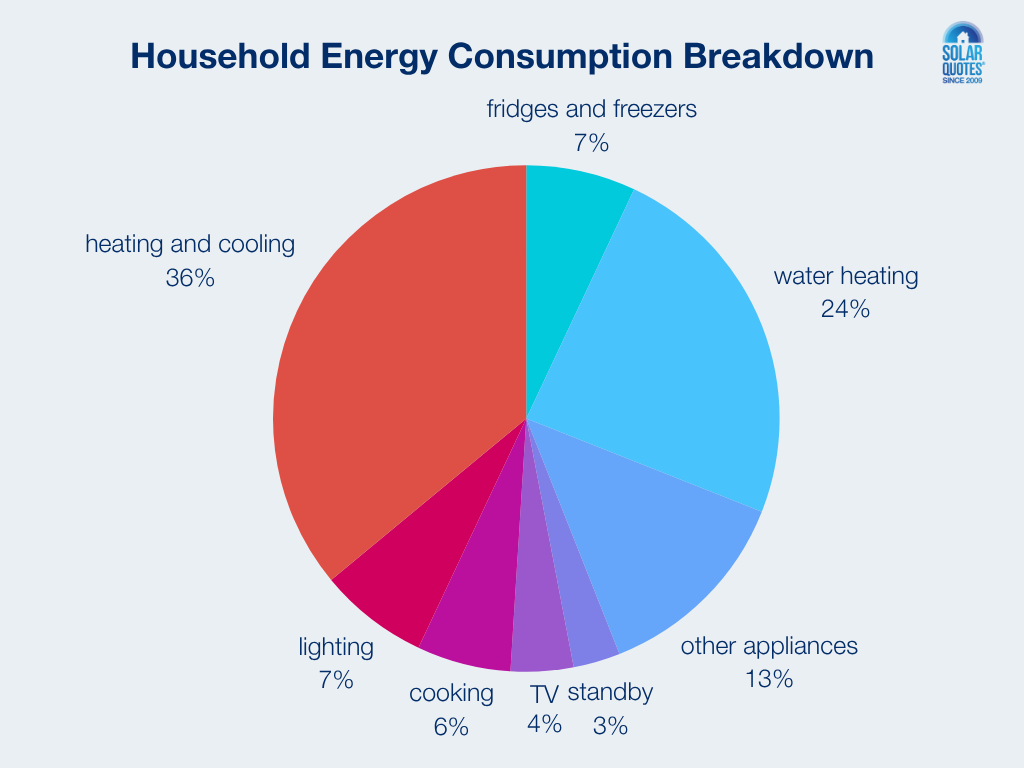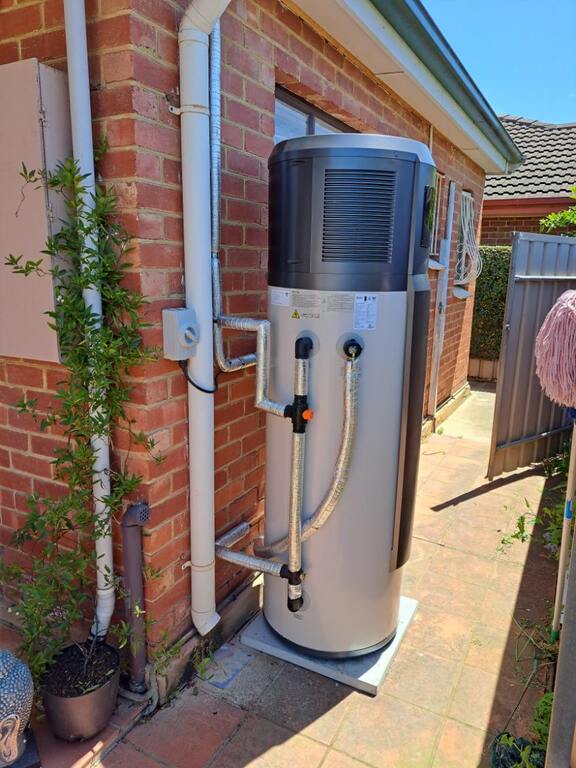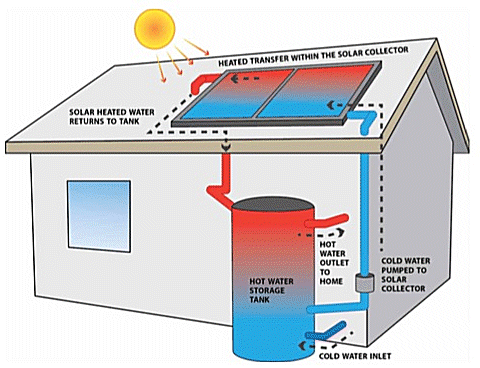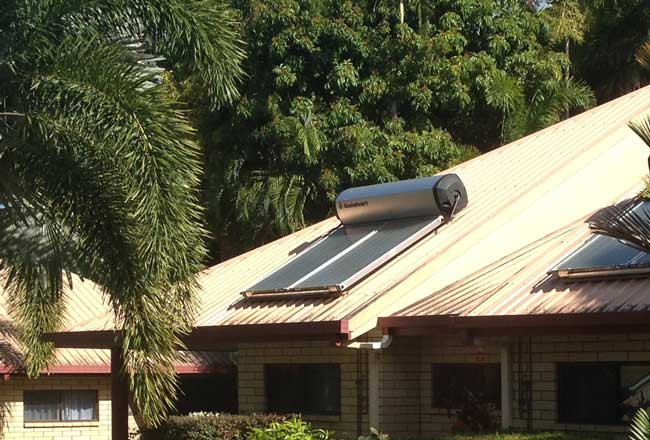Solar-Powered Hot Water Options: How to Heat Your Water Using the Sun
Hot water typically makes up about a quarter of your household energy bill.

Water heating takes up about a quarter of your household’s electricity usage.
If you’re looking to ditch gas and save money, going fully electric for your hot water can be a smart move—especially if you have or plan to get solar panels.
- Heating Your Water with Solar: Your Three Main Choices
- How Much Does Each Hot Water System Cost You?
- Which Hot Water System Makes Sense for You?
Heating Your Water with Solar: Your 3 Main Choices
1) Heat Pump Hot Water Systems

Image Credit: Adelaide West Plumbing & Gas Pty Ltd
Heat pumps use electricity cleverly: they extract heat from the surrounding air and use it to warm your water. This means they’re extremely energy-efficient, using around 70% less electricity than standard electric water heaters. And here’s the kicker: if you’ve got solar panels, you can power the heat pump during the day, getting your hot water essentially free.
Find out how everything else you need to know about heat pump hot water systems.
2) Thermal Solar Hot Water
Thermal solar hot water systems heat your water directly using the sun. They use roof-mounted flat plates or evacuated tubes to capture solar energy and transfer it to your water. An additional electric element will boost the process when there’s not enough sun. There are also thermosiphons, where the water tank goes on the roof as well. This can be an option if you don’t have sufficient space around your home for a heat pump.
There are two types of solar thermal systems:
- Flat plate
- Evacuated tube (better insulated for cooler areas)
As the cost of solar panels decreases, it gets harder to justify dedicating precious roof space to thermal systems. Read why I got rid of my own solar hot water system in favour of more solar panels and a heat pump.
3) Conventional resistive electric hot water
A conventional resistive hot water system uses an electric resistive element to heat up the water. It might not be as efficient as a heat pump, but it is cheaper up-front (about $2,000). If you set your resistive hot water system to a timer, you can heat your water during the day, while your solar is generating. If you have an electricity plan with periods of free daytime electricity, you can also set it to run then.

PV diverters can direct your excess solar towards your electric hot water unit.
Another option for solar homes is to use a PV diverter. Instead of sending surplus solar power into the grid at low feed-in rates, a diverter redirects it to your hot water system.
Using a PV diverter can make your hot water system store energy similar to a battery. However, these devices are losing popularity as actual home batteries become more common, along with periods of cheap — or even free — daytime electricity. But if you’re still interested in one, you cancompare specs of PV diverters to see which one is right for you.
How Much Does Each Hot Water System Cost You?
- Heat pump: $3,000–$7,500
- Solar thermal: $4,000–$8,500
- Conventional resistive hot water tank: $2,000–$3,000
- Timer for conventional resistive hot water tank: ~$350 or ~$200 if installed at the same time as solar
- PV Diverter for Conventional resistive hot water tank: $1,100–$2,000
Which Hot Water System Makes Sense for You?
Get a Heat Pump If:
- You’re replacing an old or broken hot water system.
- You want maximum efficiency and long-term savings.
- You already have solar panels and often export excess power or you can get very cheap or free electricity during the day.
- You’re happy to spend more upfront (~$3,000–$7,500) for lower ongoing costs.
- You’re looking for a simple way to use more of your solar energy instead of selling it back to the grid for peanuts.
Get a Conventional Electric Hot Water System If:
- You think the lower up-front cost is worth higher energy consumption.
- You have a big solar system, or you can get daily periods of free electricity.
- You lack a suitable location for heat pump hot water.
Get a PV Diverter If:
- Your existing conventional electric hot water system is in good condition.
- You already have solar panels and often export excess power.
- You’re looking for a way to use more of your solar energy instead of selling it back to the grid for peanuts.
- You don’t mind that you’d likely be better off putting the money towards a home battery or heat pump hot water.
Get a Thermal Solar Hot Water System If:
- You don’t have the space around your house for a hot water tank and want it on your roof.
- You don’t mind the higher upfront costs, more complex plumbing, and roof penetrations.
- You just happen to like solar thermal hot water, or…
- You like seeing the fear in the eyes of plumbers having to crawl on roofs.

